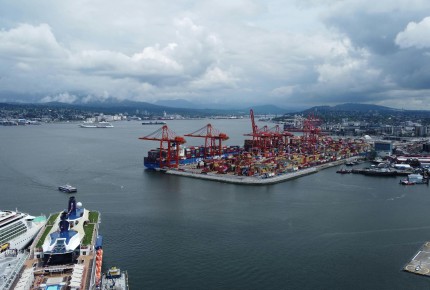Copyright © 2026 lmitac.com All Rights Reserved. Contact - Terms and Conditions - Privacy Policy - Quality Policy - Become an instructor - Vacancies - Sitemap
London Maritime Academy is a trade name for London Premier Groupversion: 2.9.0
London Maritime Academy is a trade name for London Premier Group

Posted On: 7/4/2025, 11:01:28 PM
Last Update: 7/4/2025, 11:01:28 PM
Finland has banned the discharge of toilet wastewater, sulphur wash water, and oily scrubber sludge from cargo vessels in its coastal waters, becoming the first country to do so since July 1, 2025.
Remarkably, Finland's law on the Baltic Sea aims to balance climate, commerce, and common decency, addressing the issue of international ships dumping waste into the sea, which directly impacts Europe's marine ecosystems and is a significant global trade shift.
Finland's new law prohibits three types of ship-generated waste that were previously casually dumped into the sea:
Ships passing through Finland's territorial waters and exclusive economic zone will have to either hold onto this waste and offload it at a port or avoid entering Finnish waters entirely as of July 1, 2025.
Crucially, this rule only applies in Finnish waters and after a ship enters international waters. Without international restrictions, the dumping would continue. Essentially, ships can flush elsewhere but not near Finland anymore.
Finland is the first to adopt this practice, as the Baltic Sea, despite appearing clean, absorbs waste from ships. Notably, the Baltic Sea, unlike open oceans, is semi-enclosed, resembling a giant seawater bowl with a narrow Atlantic exit.
Moreover, the Baltic Sea, a shallow and shared region among nine nations, is already overburdened by pollution from industry, agriculture, and urban run-off, as it takes up to 30 years for water to completely circulate and renew.
Besides, the main issue is that excessive wastewater nutrients, like nitrogen and phosphorus, feed large algal blooms, which absorb oxygen, block sunlight, and kill seafloor organisms. This results in dead zones devoid of crabs and fish.
Banning ships' sewage is a crucial step in addressing one of the few pollution sources that can be immediately shut off.
At the Maritime Professional Training, you investigate the sources, effects, and treatment of pollutants in wastewater, such as human waste, industrial discharge, and agricultural run-off, to determine their effects on ecosystems and human health.

Finnish harbours have tripled their capacity to process ship wastewater over the past five years, with 80% of cargo ships already offloading waste at the ports. To enforce compliance, ships must close discharge valves before entering Finnish waters, which must be officially logged for inspection and fines if ignored.
Likewise, ports in the Baltic Sea are promoting green branding by promoting clean discharge facilities as part of a sustainable trade network. Environmental groups suggest that if all nine Baltic Sea countries adopt these rules, the region could transition from a chemical sink to a recovery zone.
Furthermore, Finland's enforceable and successful waste offloading ban has led to increased waste removal, clearer coastal waters, and fewer surface slicks, making it a potential model for others to follow.
Sewage ban is a cost-effective, environmentally friendly solution that doesn't require new technology, but rather promotes better habits, a significant step in a world already grappling with climate anxiety.
Eventually, this action emphasises that even complex issues can be resolved with the right approach, if one is brave enough to take the first step.
Read more news: